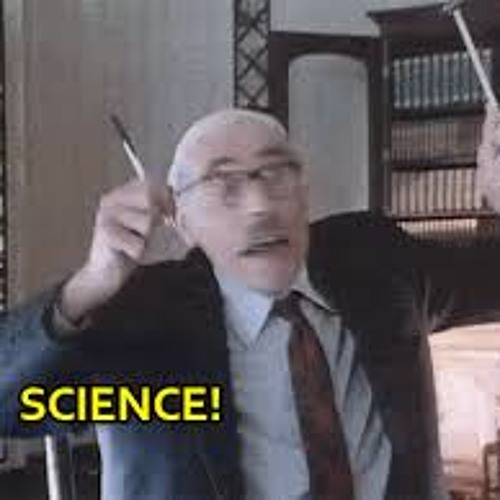Thank goodness that is not what I see! The smell that would come from green gas…..That's on my bucket list, but not what I had in mind.
-
The BladeForums.com 2024 Traditional Knife is available! Price is $250 ea (shipped within CONUS).
Order here: https://www.bladeforums.com/help/2024-traditional/
You are using an out of date browser. It may not display this or other websites correctly.
You should upgrade or use an alternative browser.
You should upgrade or use an alternative browser.
Random Thought Thread
- Thread starter Nathan the Machinist
- Start date
- Joined
- Nov 20, 2011
- Messages
- 4,990
I think you’re doing it wrong.it doesn't even taste good
Simpsons Season 8 episode 9 has some good tips and it’s one of the best episodes ever.
Nathan the Machinist
KnifeMaker / Machinist / Evil Genius
Moderator
Knifemaker / Craftsman / Service Provider
- Joined
- Feb 13, 2007
- Messages
- 18,471
Bennie Boo's ears turned purple and they still are
Nathan the Machinist
KnifeMaker / Machinist / Evil Genius
Moderator
Knifemaker / Craftsman / Service Provider
- Joined
- Feb 13, 2007
- Messages
- 18,471
Mark was a boss. He ran into town and bought some burgers. While I'm sitting there drinking milk like a little bitch.
ferider
Platinum Member
- Joined
- Jun 20, 2018
- Messages
- 15,798
Mark was a boss. He ran into town and bought some burgers. While I'm sitting there drinking milk like a little bitch.
Save some milk for tomorrow.
Nathan the Machinist
KnifeMaker / Machinist / Evil Genius
Moderator
Knifemaker / Craftsman / Service Provider
- Joined
- Feb 13, 2007
- Messages
- 18,471
Save some milk for tomorrow.
And put it in a squirt bottle?
- Joined
- Aug 21, 2014
- Messages
- 21,432
I think the people who used eugenics to create it are responsible?It's so hot. Why is it so hot. Why do these exist. There's no reason this should be a thing. Who in the hell wants this.
I'm pretty sure they come from lines of selective breeding for capsaicin content.
I'll fully admit that I dodmt research this matter and I'm just tossing spicy shit at tte wall hoping itll stick and that I look smart and cool.
carry on and I hope you find some yogurt when you're done working. it helps a ton.
- Joined
- Aug 21, 2014
- Messages
- 21,432
they work.And put it in a squirt bottle?
they really work.
- Joined
- Dec 7, 2008
- Messages
- 1,569
Don’t forget your bankyAnd put it in a squirt bottle?
I would be right next to you though
BIGDORK
Gold Member
- Joined
- May 27, 2018
- Messages
- 1,664
Lemon juice will neutralize the burn from hot peppers, in your mouth anyway..Mark was a boss. He ran into town and bought some burgers. While I'm sitting there drinking milk like a little bitch.
- Joined
- Nov 20, 2011
- Messages
- 4,990
Are you sure it’s not the salt or the tequila?Lemon juice will neutralize the burn from hot peppers, in your mouth anyway..
I mean, have you tried it with only the lemon juice?
JJ_Colt45
Platinum Member
- Joined
- Sep 11, 2014
- Messages
- 6,813
You putting a "milk" option on your bidet?they work.
they really work.
BIGDORK
Gold Member
- Joined
- May 27, 2018
- Messages
- 1,664
I have, but with lemon wedges.Are you sure it’s not the salt or the tequila?
I mean, have you tried it with only the lemon juice?
The capsaicin burn is an alkaline burn
The acid in lemon or lime will balance it out
- Joined
- Sep 4, 2011
- Messages
- 11,554
- Joined
- Oct 2, 1998
- Messages
- 47,653

How "O Holy Night" became a popular Christmas carol
"O Holy Night" create by a French composer, Adolphe Adam (Jew) and French poet Placide Cappeau (Atheist). It was controversial and considered not to be a Christmas music. But it had a huge impact during the Franco-Prussian War. And now it's one of the most popular Christmas carols.
Musical Overview
“O Holy Night” has a controversial, albeit intriguing history. The dissensions attached to it can be connected with two distinct facts - Placide Cappeau, the lyricist being an atheist, and Adolphe Adams, the composer being a Jew. Neither were so-called “church regulars,” which created a furor among the conservative Church authorities. Although “O Holy Night” was initially incorporated and accepted into Christmas services, its Atheist-Jewish origin was soon discovered.
The carol was subsequently declared unsuitable for Christmas services and received an immense amount of flak for a “lack of musical flavor” and the stark absence of religious spirit. The lyrics focused on humanity and championed humility. The fact that all men and women can have “souls” was considered to be highly radical at that time. The Catholic Church tried its best to bury the song, and somewhat succeed. However, the English translation by John Sullivan Dwight revived it, focusing on the universality of the “human spirit.” Dwight’s version quickly became famous in the United States of America due to the ongoing Civil War.
- Joined
- Aug 21, 2014
- Messages
- 21,432
squeeze bottle broLemon juice will neutralize the burn from hot peppers, in your mouth anyway..


